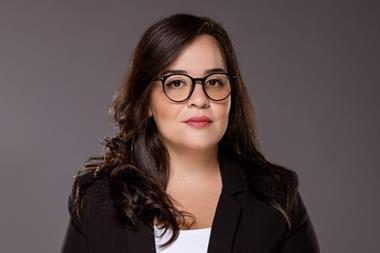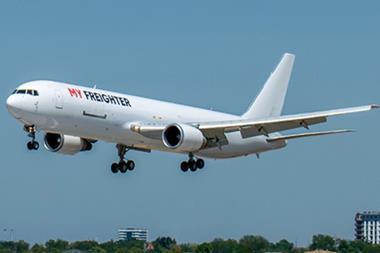Etihad Aviation Group’s president and chief executive, James Hogan, has hit out at critics of the Middle East carrier’s partnership strategy, describing it as a “core element of the growth of the business”.
Hogan, delivering a keynote speech at the Global Airfinance Conference in Dublin, said that the strategy had resulted in "5.5m guests" connecting onto the Etihad Airways network from codeshares and partners in 2016, delivering “revenue and synergy benefits”.
The speech comes amid unconfirmed press speculation that Abu Dhabi-based Etihad is currently in talks with Lufthansa to acquire a 30%-40% stake in the German flag carrier.
In December 2016, reports also suggested that Etihad was reviewing its investment strategy in European airlines as part of a wider restructuring involving a range of job cuts and that chief executive James Hogan could step down.
The Wall Street Journal (WSJ) has quoted Hogan as saying that the carrier would like to expand its relationship with Deutsche Lufthansa, but Etihad isn't planning to take an equity stake in Germany's biggest airline.
In his Dublin speech, Hogan said: “Our investments had an immediate impact on the revenue side, delivering hundreds of millions of dollars in additional revenues and allowing us to fill our onward connecting flights.
“Those benefits have been replicated in all our minority investments – in airberlin, Alitalia, Jet Airways, Virgin Australia, Air Serbia, Air Seychelles and Etihad Regional.
He continued: “We also believed our minority investments would unlock an additional advantage that the global alliances were simply unable to use. Because we had ’skin in the game’, we could work on joint procurement and other business synergies which would save us – and our partners - hundreds of millions of dollars.
“Again, we have seen similar benefits from each of our investments, with those synergies being shared by all the partners.”
Hogan said that the third goal of the equity investments, to allow the management of these airlines to reshape their businesses into sustainable profitable operations, required a longer term view.
“Of course, their business strategies remained in the hands of the local management in each case. We are pleased to support management, and to advise where requested, but the plans and implementation are in their hands.
“In this third area, we have had some strong results but we also face some significant challenges. Jet Airways, Air Serbia, Air Seychelles, Virgin Australia and Etihad Regional have all used our capital investments to help structure their businesses into more efficient and profitable operations. In those cases, our long term investments are already delivering a return.”
Hogan conceded that Etihad has faced “greater challenges” with airberlin and with Alitalia: “Both are operating in very tough competitive environments, and need to address long-standing issues facing their businesses.”
He continued: “I believe airberlin’s strategy is now on track and Alitalia is finalising a business plan to address its issues.
“We are committed to our equity partner strategy – it delivers a huge amount to our business. Some of those airlines need to react to the market pressures they face, and we are supportive of that process.
“That approach has helped Etihad grow from a $300m a year airline, to a diversified aviation group which delivers revenues of more than $26bn. Etihad Airways sits at the heart of that business, of course, but is now only one element of a model which includes significant other businesses and investments.
“That evolution has not happened by accident. Etihad Aviation Group is now a solid, diversified business with strength in depth – and with the scale to shape its destiny in the future.”
Etihad is also a significant freighter operator, with four Airbus A330Fs, three Boeing 777Fs and three Boeing 747Fs.
The United Arab Emirates' national carrier will also be the host at IATA's World Cargo Symposium 2017, which takes place in Abu Dhabi, March 14-16.










